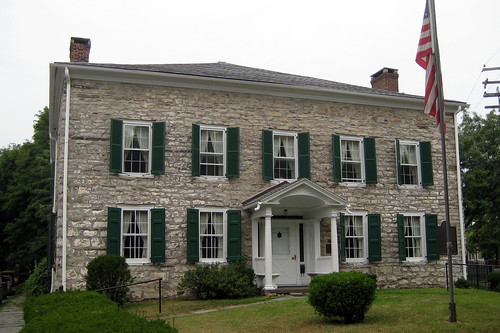The President of the Republic of Poland, Lech Kaczyński before tragical death, brought Polish Citizenship Act before the Polish Constitutional Tribunal. The President threw into question regulations that extend the authority of a province governor (Polish voivode) by giving him or her the right to recognize foreigners as Polish citizens and grant them Polish citizenship, which opens doors to get Polish passport.
In reasons for raising the discussion, Lech Kaczyński stresses that in accordance to the Constitution this is the President who grants the Polish citizenship and approves of renouncing it. Current regulations allow a province governor to recognize a foreigner as a Polish citizen only in two cases.
In reasons for raising the discussion, Lech Kaczyński stresses that in accordance to the Constitution this is the President who grants the Polish citizenship and approves of renouncing it. Current regulations allow a province governor to recognize a foreigner as a Polish citizenship only in two cases.
These two exceptions apply when a foreigner has no citizenship and has lived in Poland for at least 5 years on the basis of a settlement permission or when has got married to a Polish citizen, this marriage has last for at least 3 years and the foreigner has got a permission to settle in Poland.
However, the Act thrown into question extends number of cases when it is possible to recognize someone as a person who holds Polish citizenship.
According to the Act, a province governor would be able to recognize a foreigner as a Polish citizen when he or she has lived in Poland for at least 2 years on the basis of a settlement permission if he or she has no citizenship or has a refugee status or has been married to a Polish citizen for at least 3 years or has got a settlement permission by proving his or her Polish origin.
Lech Kaczyński stresses that “the President is the one and only constitutionally authorized body that is able to grant the Polish citizenship”.
A province governor would also be able to: (1) recognize a child as a Polish citizen whose one of parents has the Polish citizenship; (2) recognize people as Polish citizens who have stayed in Poland continuously for at least 3 years on the basis of a settlement permission, have got the right to the dwelling they occupy and have regular incomes; (3) recognize people as Polish citizens who have stayed in Poland continuously and legally for at least 10 years (if they have got a settlement permission, have got the right to the dwelling they occupy and have regular incomes).
Lech Kaczyński stresses “the Constitution explicitly presents one way to be given the Polish citizenship – granting the Polish citizenship by the President”. Therefore, in his opinion, allowing a province governor to recognize a foreigner as a Polish citizen “inevitably leads to weakening the President’s prerogative”.
Extending number of cases when this is a province governor who could decide that someone should be recognized as a Polish citizen ought to be done “with much care”, as we can read in justification of the President’s decision. “Delivering solutions that bring identical result as granting the citizenship and that are intended for a particular foreigners’ group who is subject to decisions of the government body raise doubts from the perspective of the Constitution”, we can read in the justification.
Lech Kaczyński stresses “the President is the one and only constitutionally authorized body that is able to grant the Polish citizenship”. That is why – he continues – legislators “cannot come into a domain that is constitutionally reserved for the state body representing the Republic of Poland in home affairs”, regardless of whether there are another ways of being given the Polish citizenship than granting it by the President.
The President also points out that the fact of recognizing as a Polish citizen was present in the regulations from 1920 and 1951. The main purpose was to facilitate dealing with Polish citizenship matters after “two historic cataclysms of the First and Second World Wars that brought about social and political changes and mass migrations”. In the President’s opinion, keeping this possibility in the following regulations “is not that important”. This matter is very important today – as Polish citizenship allows to use Polish passport – and Polish passport, because of Polish membership in UE is very desirable thing in many parts of world
New Polish Citizenship Act is to replace current regulations.
Recognizing as a Polish citizen – as Lech Kaczyński stated – is a special procedure: complementary to granting the Polish citizenship by the President and extraordinary as well. To his mind, extending number of cases when a province governor is able to recognize a foreigner as a Polish citizen in the Act thrown into question “means that legislators no longer continue to treat recognition as a Polish citizen as an extraordinary case”.
According to Lech Kaczyński, “there is no doubt that in this case extending the authority of the government bodies in matters that are traditionally reserved for the President’s prerogative (Polish citizenship issues) takes place”.
A new Polish Citizenship Act is to replace current regulations and fully settle the rules of being given the Polish citizenship. The Act – apart from such ways of being given the Polish citizenship as by birth, by adoption, by repatriation, by granting or by recognizing as a Polish citizen – introduces the possibility to restore the Polish citizenship. A decision on restoring the citizenship is to taken by the Minister of Interior and Administration.
Find More The Constitution Articles




